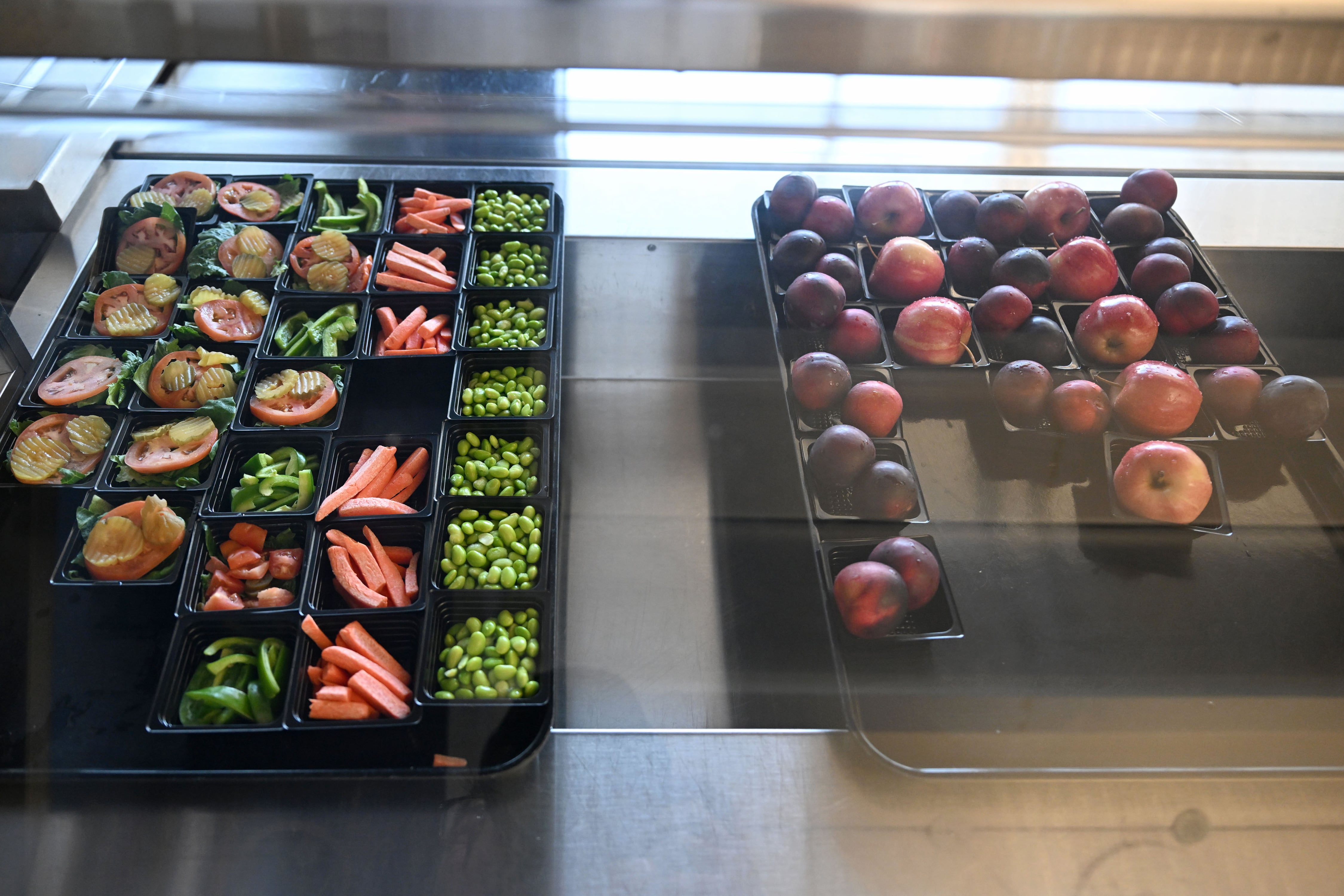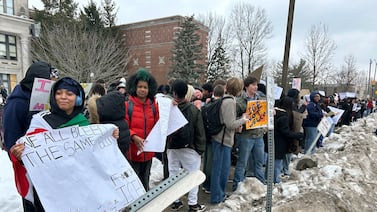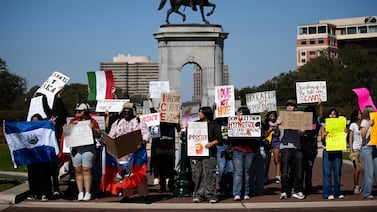Sign up for Chalkbeat Colorado’s free daily newsletter to get the latest reporting from us, plus curated news from other Colorado outlets, delivered to your inbox.
Colorado voters said yes Tuesday night to pumping more money into the state’s free school meals program by raising taxes on households that make more than $300,000 a year, election returns showed.
The Associated Press called the race in favor of Proposition MM, which asked voters to raise taxes for a second time in three years to help fund the state’s Healthy School Meals for All program.
The program provides free breakfast and lunch to students at participating schools. The proposition is one of two that wanted voters to increase program funding. Proposition LL also passed.
The program has become more popular and therefore more expensive than expected. Money from Proposition FF, the 2022 ballot measure that created Healthy School Meals for All, hasn’t raised enough annual revenue to keep up with expenses.
Advocates on Tuesday night said the passage of the measures is a victory for children’s well-being. They said the money will help combat uncertainty around the federal Supplemental Nutrition Assistance Program, or SNAP, which helps provide food assistance to families and was cut back by Congress.
Ana Bustamante, whose organization Save the Children Action Network supported both measures, said no student should have to be hungry at school. She said the approval of MM means Colorado could have extra money to help with the federal SNAP cuts.
In a news release, the Keep Kids Fed campaign said the victory means better grades, higher graduation rates, and better outcomes for Colorado students. The organization lists 110 organizations across the state as part of its committee, including hospitals, county governments, churches, teachers associations, and community advocacy organizations.
Anya Rose, director of public policy at Hunger Free Colorado and a member of the Keep Kids Fed campaign, said the victory is a win for students and families.
“While we celebrate this victory for Colorado kids and families, we also cannot ignore that, for thousands of Colorado families, this remains a time of deep economic hardship and food insecurity, made worse by USDA’s refusal to provide full funding for SNAP and the devastating cuts to SNAP Congress approved this past summer,” she said.
Proposition MM is expected to raise $95 million more for the Healthy School Meals for All program. The money could also be used to administer the SNAP program.
The ballot measure would affect an estimated 200,000 Colorado households, or about 6% of households, and raise their taxes by an average of $486 more a year.
Without the money generated from the two ballot measures, about 382 of the 1,803 schools participating would have been unable able to serve free meals starting in January. Families at those schools would have needed to either pay for meals or fill out federal forms to get free or reduced price meals.
Jason Gonzales is a reporter covering higher education and the Colorado legislature. Chalkbeat Colorado partners with Open Campus on higher education coverage. Contact Jason at jgonzales@chalkbeat.org.






